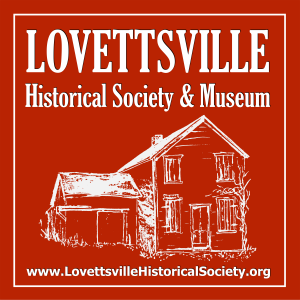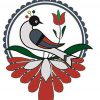“The Shenandoah Valley’s German Heritage”
Presented by
Karen Good Cooper,
President of the Shenandoah Germanic Heritage Museum
Shenandoah County, Va.
Sunday, September 8, at 2:00 p.m.
When census takers asked Americans at the end of the 20th Century which ethnic group they identified with the most, a large number of Americans said they were of German descent — reflecting the fact that German-Americans in 2005 were still the largest national ethnic group in the United States. Yet many of these people today would not know what this means in terms of their ancestors’ beliefs, customs, or folk ways.
On Sunday, September 8, as Lovettsville prepares for its annual Oktoberfest, the Lovettsville Historical Society will discuss just what this heritage encompasses, and why it has been so important to the success of the United States. Karen Good Cooper, President of the Shenandoah Germanic Heritage Museum in Shenandoah County, Virginia, will describe how the German settlers in the Shenandoah Valley (including those in the Lovettsville “German Settlement”), brought their ideas, methods, and customs to this area, and how this affected so much of how we behave and work today.
The Shenandoah Valley was a major, early settlement point for the first groups of people arriving in Pennsylvania from the Rhine River Valley and the Swiss cantons nearby. Like in the Shenandoah, the Germans at Lovettsville also came through Pennsylvania. They too continued to keep their “Germanic Heritage” for many years.
Karen traces many of her ancestors back ten generations in Shenandoah County, and has been studying Shenandoah and Virginia history for about fifty years. Her husband’s ancestor, Elias Cooper, insisted to the census taker, in 1850 and 1860, that he was born in Loudoun County. Since his wife was born on a ship to America and spoke German, Karen believes that Elias probably belonged to the Lutheran Coopers from Lovettsville.
The Shenandoah Germanic Heritage Museum, which Karen heads, consists of a 394-acre farm at Mt. Olive, Virginia, near Toms Brook. The museum houses artifacts that teach about our early settlers and their beliefs and folk ways. In fact, Karen says, the farm itself serves as part of teaching materials about the farming methods of men and women from earlier times.
Karen’s presentation will be held at St. James United Church of Christ, at 10 East Broad Way in Lovettsville (formerly the German Reformed Church, thought to have been founded in the early 1730s by the earliest German settlers in Loudoun County).
The lecture is free and open to the public, but donations and are welcome to defray expenses of the program.

